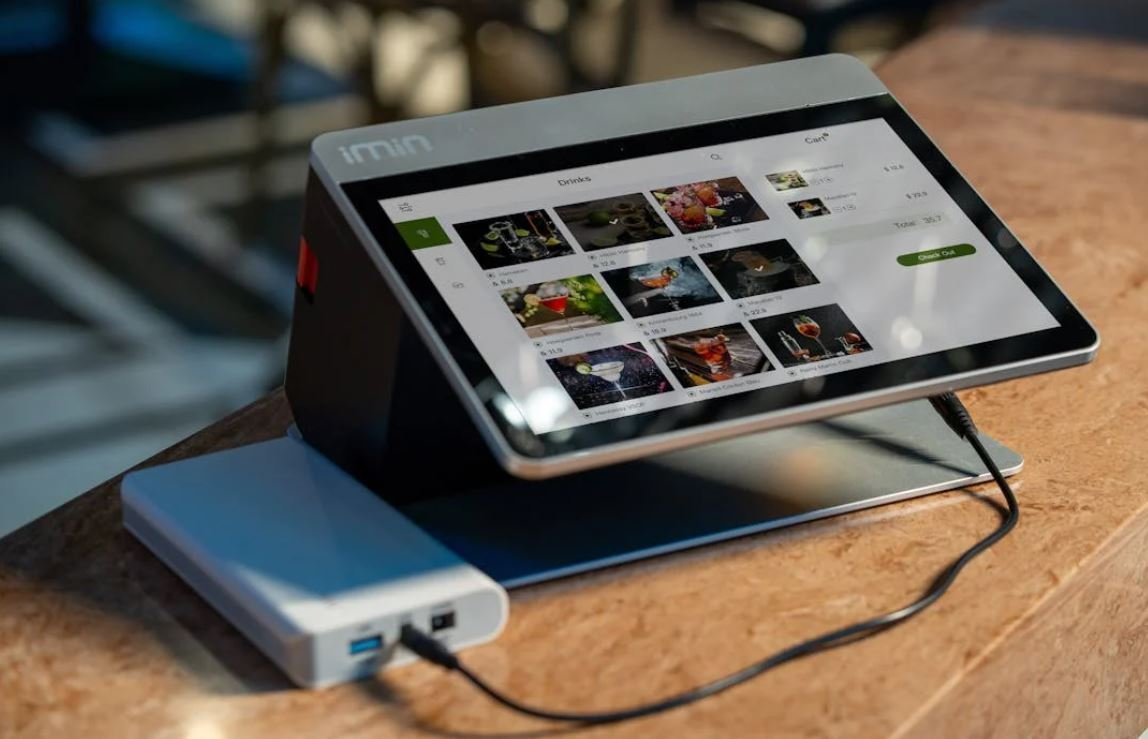In today’s fast-paced retail and service environments, small businesses need tools that streamline operations, enhance customer experiences, and provide real-time insights. A reliable Point of Sale (POS) system does exactly that — and more. From managing inventory and employees to integrating with accounting tools, POS systems have become indispensable for small businesses. In this article, we’ll explore top-rated POS software solutions tailored for small businesses, evaluating their features, pricing, pros, and ideal use cases.
What Is a POS System?
A Point of Sale (POS) system is a combination of hardware and software that allows businesses to complete sales transactions. More than just a cash register, modern POS systems offer a range of functionalities such as:
- Inventory management
- Customer relationship management (CRM)
- Employee tracking
- Sales analytics
- Integration with eCommerce and accounting platforms
For small businesses, the right POS solution can be the difference between disorganized chaos and smooth daily operations.
Why Small Businesses Need POS Systems
Streamlined Operations
A POS software for PC automates essential functions, reducing manual errors and saving valuable time.
Better Customer Experience
Quick checkout processes, loyalty programs, and accurate stock levels improve the shopping experience.
Data-Driven Decisions
With built-in analytics, business owners can make informed decisions based on real-time data.
Top-Rated POS Software Solutions
1. Square POS
Overview
Square is one of the most popular and user-friendly POS systems, especially favored by startups, pop-up shops, and small retailers.
Key Features
- Free POS software with optional add-ons
- Inventory and sales tracking
- Integrated payment processing
- Invoicing and digital receipts
- Mobile and tablet support
Pros
- No monthly fees for basic features
- Transparent flat-rate payment processing
- Easy setup and user-friendly interface
Cons
- Limited offline functionality
- Higher transaction fees compared to some competitors
Best For
Retailers, food trucks, coffee shops, and solopreneurs looking for an affordable and flexible POS.
2. Shopify POS
Overview
Ideal for businesses that sell both in-store and online, Shopify POS integrates seamlessly with Shopify’s eCommerce platform.
Key Features
- Omnichannel selling support
- Real-time inventory syncing
- Customer profiles and loyalty tracking
- Integration with Shopify apps
Pros
- Excellent for businesses with online and physical stores
- Highly customizable with third-party apps
- User-friendly interface
Cons
- Requires a Shopify subscription
- Some features are locked behind higher-tier plans
Best For
Retailers managing both brick-and-mortar and online operations.
3. Lightspeed Retail
Overview
Lightspeed is a robust POS platform designed for retailers that need advanced inventory and analytics capabilities.
Key Features
- Advanced inventory management
- Employee management tools
- Multi-store capabilities
- Reporting and analytics dashboard
Pros
- Excellent customer support
- Customizable for various retail needs
- Integrates with accounting and eCommerce platforms
Cons
- Slightly steeper learning curve
- Higher monthly cost
Best For
Boutiques, specialty stores, and growing retailers needing advanced functionality.
4. Toast POS
Overview
Designed specifically for restaurants and food services, Toast is a top-rated POS system for small eateries.
Key Features
- Menu management and table tracking
- Online ordering and delivery integration
- Employee scheduling and payroll
- Contactless payments
Pros
- Tailored for food and beverage businesses
- Offline functionality
- Excellent reporting features
Cons
- Only works with Toast’s proprietary hardware
- Pricing can be high for small restaurants
Best For
Cafés, quick-service restaurants, and bars.
5. Vend by Lightspeed
Overview
Vend is a cloud-based POS system with a strong reputation for simplicity and scalability.
Key Features
- Cloud-based inventory and customer management
- Works offline and syncs when back online
- Loyalty program integration
- eCommerce integrations
Pros
- Intuitive user interface
- Strong customer support
- Great for multi-store setups
Cons
- Pricing is on the higher side for smaller businesses
- Some advanced features only available on premium plans
Best For
Retailers who need a scalable, cloud-based solution.
Features to Consider When Choosing a POS System
Ease of Use POS Software
Small businesses often operate with limited staff. A user-friendly POS can reduce training time and minimize errors.
Hardware Compatibility
Some systems require proprietary hardware, while others work with standard tablets or phones.
Inventory Management
Choose a POS that can track inventory in real-time, notify you of low stock, and handle returns with ease.
Reporting and Analytics
Detailed insights into sales, peak hours, and best-selling products help businesses grow strategically.
Cost and Scalability
Start with an affordable solution that can grow with your business needs.
Cloud-Based vs. Traditional POS Systems
| Feature | Cloud-Based POS | Traditional POS |
| Accessibility | Accessible from anywhere | Only from the physical terminal |
| Updates | Automatic | Manual |
| Hardware | Works with tablets/PCs | Requires dedicated hardware |
| Cost | Monthly subscription | Higher upfront cost |
| Scalability | Easily scalable | Less flexible |
Cloud-based systems are increasingly preferred due to flexibility and lower initial costs.
Final Thoughts
The right POS software can transform the way small businesses operate — from reducing manual labor to enhancing customer satisfaction. Whether you’re a retailer, restaurateur, or service provider, there’s a POS solution tailored to your needs.
Square is excellent for those starting out, while Shopify POS excels in omnichannel retail. Lightspeed and Vend offer powerful tools for growing stores, and Toast remains a favorite in food service.
Take the time to evaluate your specific business needs, budget, and future growth plans before making a decision.















Leave a Reply